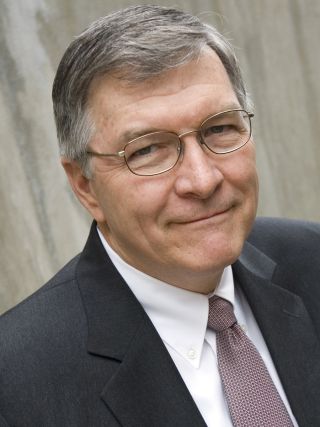Relationships
Why a Lack of Trust Is So Damaging
Three surprising ways to build greater trust.
Posted April 5, 2023 Reviewed by Tyler Woods
Key points
- We need people we can trust to provide emotional support, stability, and a sense of community.
- We can build greater trust in our lives by focusing on relationships, consistency, and expertise.
- Greater trust helps individuals, organizations, and communities flourish.

If you’ve been feeling a lack of trust these days, you’re not alone. Our world is experiencing a serious erosion of trust in our governments, institutions, and communities. The Edelman Trust Barometer reports that 53 percent of respondents see their countries as more divided today than ever before (Edelman, 2023). This lack of trust coincides with escalating rates of loneliness, anxiety, and depression worldwide (American Psychological Association, 2022; World Health Organization, 2022).
Although to protect ourselves we often need to be careful about whom to trust, we need people we can trust to provide stability, support, and a sense of community in our lives. According to the renowned Harvard Study of Adult Development, the major determining factor in health, longevity, and well-being was not money or career success, but feeling connected to people the subjects trusted and cared about and who cared about them (Waldinger & Schulz, 2023).
Building Trust
There are three factors that build trust: 1) building relationships, 2) consistency, and 3) expertise (Folkman, 2022). It would seem that consistency would be the most important factor, but when researcher Joe Folkman examined the data, he found “that while they all matter, and in fact, there's an interaction effect between them, the one with the biggest impact was relationships” (Folkman, personal communication, 2023).
According to Folkman, author of The Trifecta of Trust (2022), these same three factors build trust in organizations and can also build trust in our communities (Folkman, 2023).
1. Relationships. Trust begins with relationships. Psychologist Barbara Fredrickson, Ph.D., has found that even “micro-moments of connectivity” have a positive effect on us. We can make these connections not only with close friends and family members but the grocery store clerk or anyone else we encounter in daily life. A simple smile, eye contact, perhaps a kind word—that’s all it takes. These connections benefit both the giver and receiver—raising our mood, relieving stress, and reducing inflammation to promote greater physical and emotional well-being (Fredrickson, 2013). These small interactions can build more trusting and caring communities. Fredrickson writes that “studies of actual social networks show that, over time, happiness spreads through whole communities” in a positive ripple effect (2013, p. 61).
2. Consistency. Folkman says that consistency is often a problem for leaders. When someone at work asks for assistance, a well-intentioned leader promises to help, but can get distracted, failing to follow through. Folkman points out that, “When people ask us to do something, they always remember,” even if we don’t, and that in all our relationships, “We need to “pay more attention to those things, and be careful what we promise.”
3. Expertise. Trusting in someone’s professional knowledge and ability holds true at work and in our communities. Folkman says that when he goes to the doctor, who tells him to do something—exercise more, eat healthier foods—to improve his health, he follow his doctor’s advice because he trusts his medical expertise.

In our communities, these three factors—relationships, consistency, and expertise—are important when finding people we can trust to repair our cars or work on our houses. I rely on referrals from friends, especially one friend who’s had lots of work done on her house, because she knows contractors who are honest, reliable, and charge a reasonable fee. And I share my own referrals with friends in a network of trust that benefits us all.
According to Folkman, a lack of trust brings friction to organizations, making it harder to get things done, and greater trust can benefit our economy. He found that when the World Values Survey asked, “Can most people be trusted?” over 70 percent of the population in Norway agreed, over 60 percent agreed in the Netherlands, 42 percent in the United States, and under 5 percent in Colombia. He also found that the correlation between this level of trust and the gross domestic product of a nation is a highly significant Pearson Correlation Coefficient of 0.83.
Building Trust in Our Lives
How can we can begin building trust in our lives and our communities? Folkman’s research has found that we can improve our relationships by listening to people and pointing out what we appreciate about them. Appreciating others is a gratitude practice, which psychologist Robert Emmons, Ph.D., has found helps us and the other person feel better, strengthening our well-being, immune systems, and our capacity to flourish (Emmons, 2008; Fredrickson, & Joiner, 2002).
We can build greater trust by being consistent, keeping our promises, and doing what we say we’re going to do.
Folkman points out that we can share our expertise by becoming a mentor to others. Helping someone else learn and grow can build a strong bond of trust. We can be less competitive and more collaborative, recognizing that when we work together, we become part of a team.
Building trust can be learned. Folkman recalls that when he was a boy, eager to enjoy a piece of fresh cantaloupe, he was confused when his father said to pass the salt. But when he followed his father’s example and sprinkled a little salt on his slice of cantaloupe, it tasted even better. Borrowing from this experience, Folkman published an article entitled, “Understanding Trust: The Salt of Leadership” (Folkman, 2020).
________________
This post is for informational purposes and should not substitute for psychotherapy with a qualified professional. © Diane Dreher, PhD. 2023
References
American Psychological Association. (2022, May 9). COVID-19 pandemic led to increase in loneliness around the world. https://www.apa.org/news/press/releases/2022/05/covid-19-increase-loneliness
Edelman Trust Barometer. (2023). Social fabric weakens amid deepening divisions. https://www.edelman.com/trust/2023/trust-barometer
Emmons, R. (2008). Thanks! How practicing gratitude can make you happier. New York, NY: Harper One.
Folkman, J. (2020, July 28). Understanding trust: The salt of leadership. Forbes. https://www.forbes.com/sites/joefolkman/2020/07/28/understanding-trust-the-salt-of-leadership/?sh=8608ce9109ed
Folkman, J. (2022). The trifecta of trust. Austin, TX: River Grove Books.
Folkman, J. (2023, March 2). Personal communication. All quotes and statements from Joe Folkman are from this source.
Fredrickson, B. (2013). Love 2.0: How our supreme emotion affects everything we feel, think, do, and become. New York, NY: Hudson Street Press.
Fredrickson, B. & Joiner, T. (2002). Positive emotions trigger upward spirals toward emotional well-being. Psychological Science, 13, 172-175.
Waldinger, R. & Schulz, M. (2023). The good life: Lessons from the world’s longest scientific study of happiness. New York, NY: Simon & Schuster.
World Health Organization. (2022, March 2). COVID-19 pandemic triggers 25% increase in prevalence of anxiety and depression worldwide https://www.who.int/news/item/02-03-2022-covid-19-pandemic-triggers-25-increase-in-prevalence-of-anxiety-and-depression-worldwide
World Values Survey. https://www.worldvaluessurvey.org/wvs.jsp




